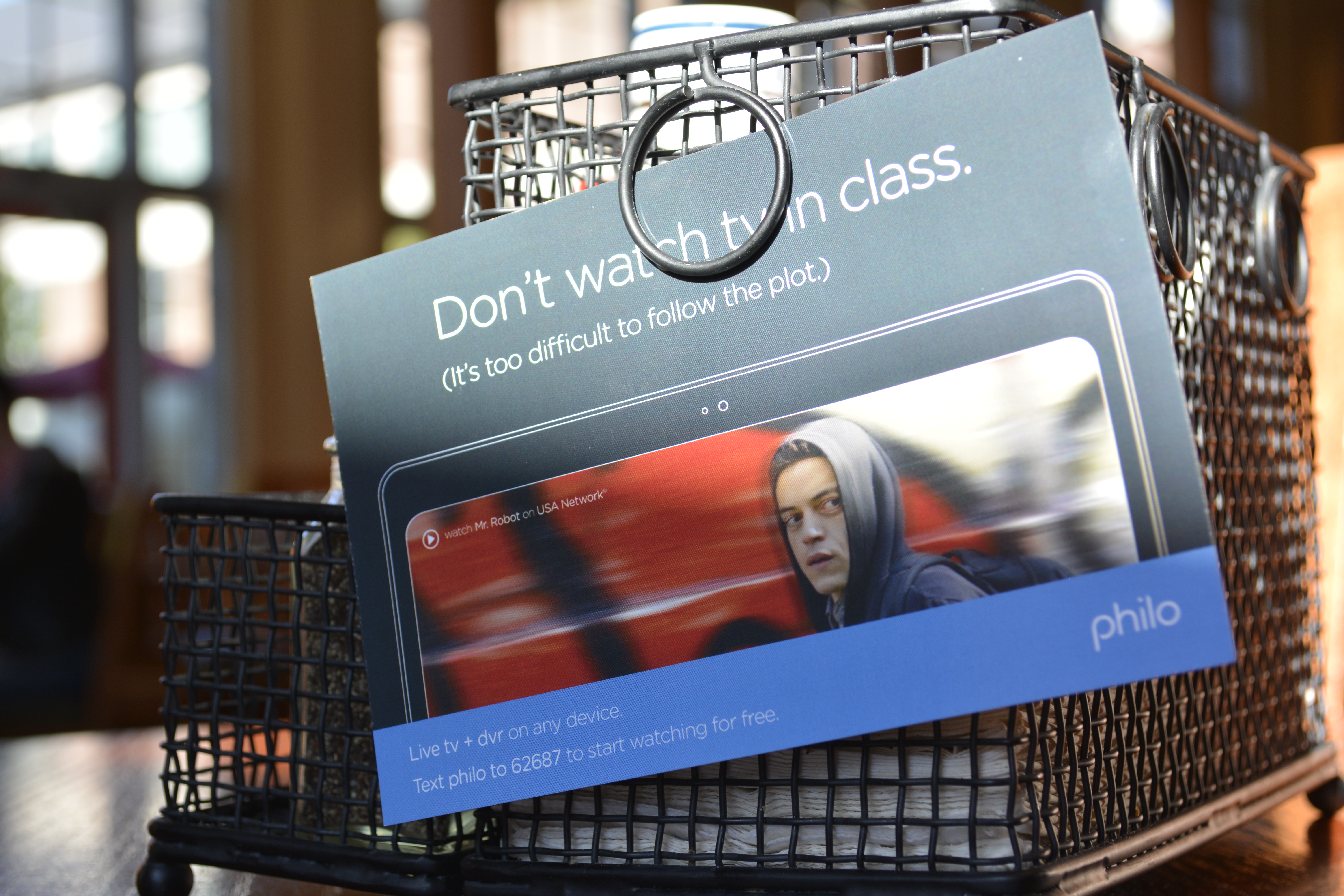Close your eyes and imagine a world in which the notorious coaxial cable is rendered useless on campus; now open your eyes. Thanks to the help of OIT, led by Chief Information Officer Allan Chen, as well as the Office of Residential Services, that world is beginning to become a reality.
On Sept. 28, Chen announced via email the official launch of Philo, a network-based television service that is now free and available for use by all students. Philo essentially offers a basic cable package, similar to the one currently available to students, but on every viewing medium – this includes laptops, iOS and Android powered phones as well as devices that can use Roku software.
“I first heard about this about a year and a half ago,” said Chen. “They just came to us and talked about it and we just really felt that it was a good opportunity to provide a significant extra value to the students, from our traditional TV service.”
While Philo’s capabilities aren’t exactly comparable to services like Netflix or Hulu, it does give students the ability to DVR up to 20 hours of content and access to a good range of channels. Kate Shelley, Associate Director of Housing Services, touched on this as a primary motivation to commit to Philo.
“This is something that we’ve looked at over the years,” said Shelley. “We’ve had requests from students over the years for something with streaming or DVR capabilities, so the fact that this had both was really helpful.”
A basic cable package, in addition to a rotation of supplemental channels, are available for anyone on the network to view. This includes shows like “Law & Order SVU,” “Spongebob Squarepants,” “Saturday Night Live” and many others.
Both Shelley and Chen commented on the simplicity and ease of use, as well as its practicality for future changes to the market.
“It seemed like it had a bit of a smarter design. It had a flexibility with the different providers that we have for programming, so it works with Service Electric which is our cable company today, it can work with DirecTV and RCN,” said Chen. “I felt that we could roll it out, students could just figure it out and we wouldn’t have to go in and take a lot of support calls and people from the Office of Residential Services felt the same way.”
Mary Baumel ‘20 felt that the user interface was simple and easy to use. “I wanted to watch CNN live for coverage of the Las Vegas shooting and figuring out how to access that was pretty straightforward,” said Baumel.
Philo offers a feature called MyTV, where users can view shows you’ve recently recorded, shows that are trending live and upcoming shows users might be interested in.
“My TV doesn’t have any recording capability so that will probably be my primary use for Philo. It might increase how much I watch TV just because it’s easier to record shows I wouldn’t normally have the time to watch.”
With the introduction of a new streaming service, anyone who relies on a WiFi connection would naturally feel a wave of concern. The thought of ‘Not my WiFi, “Game of Thrones” is on!’crossing many students minds. However, one of Philo’s most efficient features is its ability to not stream directly from the internet; instead, it relies on the campus network.
“This is the beauty of the system,” said Chen. “It actually is on our network – you’re not streaming over the internet. So there’s the internet, which is the outside world, and then you have the internal campus network which is 100 times faster than the internet connection.”
As Philo begins to grow as a business, it’s catching the eye of IT personnel like Chen as it continues to build relationships with other media and entertainment companies, including HBO. HBO Go services could be available to students soon, depending on a potential campus-wide subscription to HBO.
While Muhlenberg is the first school in the Lehigh Valley to use Philo, Baumel touched on other friends that go to schools that offer similar services. Both her and Chen are optimistic about the usage of Philo on campus.
“I do believe we’ll get pretty good usage out of the system and I think it will justify implementation,” said Chen. “If it doesn’t, I made sure to negotiate a fairly short contract that’s long enough to see how successful it can be but it’s not so long that we’re locked in for say five or six years. If it doesn’t work out, we will just discontinue it.”
The contract, according to Chen, will last for the next three years. Most of the cost will come from the student technology fee, which is included in students’ yearly bill.
While the service itself has yet to gain popularity, various paper advertisements in the dining hall and residence halls should do the trick of spreading the word, according to Shelley. Occasional emails and posts on social media will continue to remind students of the availability of the service.
In addition to Philo, Chen and OIT plan to soon upgrade their internet connectivity to a new service that will “have special connections to Netflix, Amazon and a couple other services, which will then improve our streaming on Netflix as well.” Changes to technology on campus are continually marking our shift into the digital age – will we even need to attend lectures next year?






















